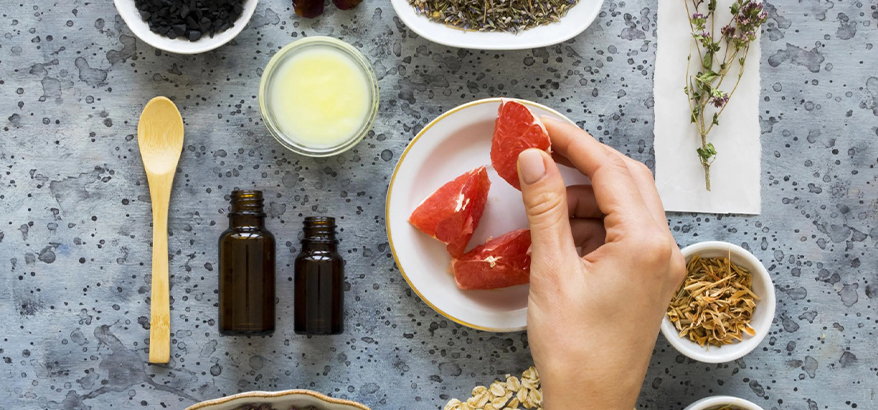
PCOD (Polycystic Ovary Syndrome) affects millions of women globally and is a common cause of infertility, irregular periods, and hormonal imbalance. It can disrupt a woman’s health and emotional well-being, but Ayurveda offers holistic solutions to tackle the root cause of PCOD and restore harmony within the body. In this blog, we will explore Ayurvedic tips for managing PCOD, regulating hormones, and improving fertility.
What is PCOD? PCOD, or Polycystic Ovary Syndrome, is a hormonal disorder that causes irregular menstrual cycles, excessive hair growth, acne, and cysts on the ovaries. It’s often accompanied by symptoms like weight gain, anxiety, and fatigue. While modern medicine offers treatments, Ayurveda views PCOD as a disorder caused by an imbalance of the body's doshas (Vata, Pitta, and Kapha) and offers natural ways to restore balance.
How Ayurveda Helps in Managing PCOD: Ayurveda focuses on holistic healing, addressing the root cause rather than just alleviating symptoms. According to Ayurvedic principles, managing PCOD requires a balance of diet, lifestyle, herbal remedies, and stress management.
Diet and Nutrition for PCOD: In Ayurveda, food plays a crucial role in balancing the doshas and supporting overall health. For women with PCOD, a balanced diet rich in whole foods can help regulate hormones and reduce symptoms.
Foods to include:
Whole grains: Brown rice, quinoa, and oats help in maintaining insulin levels and controlling weight.
Leafy greens: Spinach, kale, and fenugreek are rich in antioxidants and help in managing PCOD.
Healthy fats: Avocados, nuts, and seeds help regulate hormones and reduce inflammation.
Spices: Turmeric and ginger are powerful anti-inflammatory agents that aid in hormone regulation.
Foods to avoid:
Processed foods and refined sugars should be avoided as they spike insulin levels and contribute to weight gain and hormonal imbalances.
Dairy in excess may aggravate the hormonal imbalance in some women with PCOD.
Ayurvedic Herbs for PCOD: Several Ayurvedic herbs have been traditionally used to support women with PCOD. These herbs work by balancing hormones, improving fertility, and enhancing overall health.
Shatavari: Known for its ability to balance estrogen levels and enhance fertility.
Ashwagandha: Helps in managing stress and supporting hormonal balance.
Turmeric: Its anti-inflammatory properties help regulate insulin resistance, a key factor in PCOD.
Guduchi (Giloy): A powerful herb for detoxification and immune support.
Lifestyle Changes to Manage PCOD: Incorporating simple Ayurvedic lifestyle changes can help improve the quality of life and manage PCOD more effectively.
Exercise: Regular physical activity, such as yoga and walking, helps manage weight, regulate hormones, and improve insulin sensitivity.
Ayurvedic Yoga for PCOD: Specific asanas like the Sarvangasana (Shoulder Stand) and Badhakonasana (Butterfly Pose) are beneficial for enhancing blood circulation and regulating the menstrual cycle.
Stress Management: Chronic stress can worsen the symptoms of PCOD. Ayurveda emphasizes relaxation techniques such as meditation, deep breathing, and Pranayama to calm the nervous system and maintain hormonal balance.
Adequate Sleep: Sleep is crucial for hormonal regulation. Ayurveda recommends following a regular sleep schedule and using calming herbs like Ashwagandha before bedtime to promote deep, restful sleep.
Detoxification (Panchakarma) for PCOD: Ayurvedic detox treatments like Panchakarma can help cleanse the body of toxins and excess doshas, thereby restoring balance. Panchakarma therapies such as Abhyanga (oil massage), Virechana (therapeutic purgation), and Nasyam (nasal therapy) can help rejuvenate the body, improve digestion, and regulate the menstrual cycle.
Importance of Self-Care and Mindfulness: Ayurveda emphasizes the importance of a balanced mind and body. Practicing mindfulness, maintaining a positive outlook, and engaging in self-care practices like aromatherapy or massage can support emotional well-being and reduce the stress caused by PCOD.
How Our Ayurveda Treatments Can Help: At Dr. Raniya Sulthana Ayurveda Multi-Specialty Hospital, we offer specialized Ayurvedic treatments and therapies for women suffering from PCOD. Our experienced Ayurvedic practitioners create personalized treatment plans tailored to your needs, incorporating diet, herbal remedies, Panchakarma therapies, and lifestyle modifications.
By addressing the root causes of PCOD and taking a holistic approach, we help restore hormonal balance and improve fertility. Whether you are dealing with irregular periods, weight gain, or fertility issues, our Ayurveda-based treatments can guide you toward a healthier, more balanced life.
Conclusion: PCOD can be a challenging condition to manage, but Ayurveda offers a natural, effective approach to regulating hormones, managing symptoms, and improving fertility. With personalized treatments at Dr. Raniya Sulthana Ayurveda Multi-Specialty Hospital, women with PCOD can find relief and regain control over their health. Embrace the holistic power of Ayurveda and experience a healthier, balanced life.
For a consultation or to learn more about our Ayurvedic treatments for PCOD, contact us today at [Phone Number] or book an appointment online.
First Floor, Somanathapuram, Door No 4, 11B, Paper Mills Road, near Square Brothers Xerox, Kolathur, Tamil Nadu 600099.
First Floor, 241, Poonamallee High Rd, Maduravoyal, Chennai, Tamil Nadu 600095.
No. 63, HIG1, Ground Floor, Mogappair West Main Road, Nolambur, Chennai, Tamil Nadu 600037.

Copyrights All Rights Reserved Dr. Raniya Sulthana Ayurveda Multispeciality Clinic | Website Designed & Developed By GlintCreatives.com